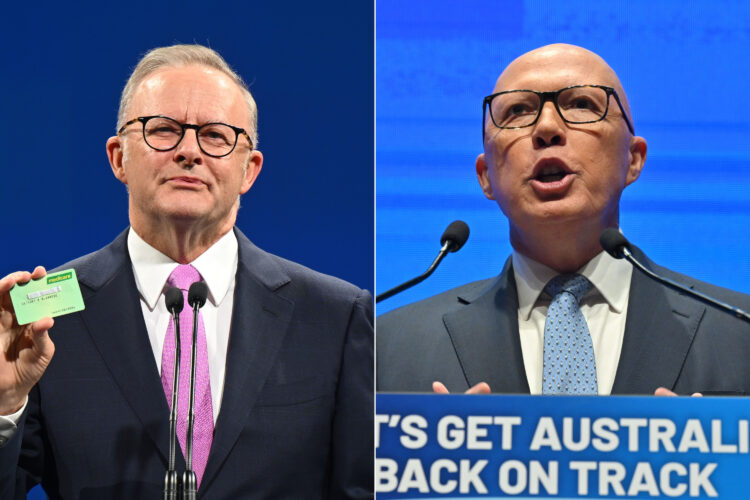Q: Come back to Donald Trump. It’s a while since you’ve had a conversation and had a tariff put on us of 10% and steel and aluminium. You have suggested some deal around critical minerals is on the table. What is that, Mr Albanese? What exactly are you offering Donald Trump?
Albanese:
We’ll engage diplomatically, not through TV interview, but we have put forward a proposition to the US. The US have put forward publicly their complaints about Australia. We won’t budge on the Pharmaceutical Benefits Scheme. We won’t budge on biosecurity issues. We won’t budge on the media bargaining code. We will stand up for Australia’s national interests because that is important. So we’ll continue to engage with the US.
Q: You said critical minerals have been put on the table. So what is it?
Albanese:
A critical minerals reserve is just that. It’s a reserve of the critical minerals and rare earths which Australia has an abundance of critical minerals – we have the entire periodic table here.
Q: And what do you say? You can have it? At a discount?
Albanese:
No. We will negotiate.
Q: The US is very keen to get access to critical minerals and rare earths. The trade dispute with China is particularly concerning to many in the US economy. Will we reserve this for the US?
Albanese:
No. We’ll negotiate with the US rather than with you, David, with respect. I
Q: Mr Dutton, you’ve said you’ll get a deal very quickly with Donald Trump. He would drop these tariffs. No other leader has managed this. How do you plan to pull this one off?
Dutton:
We did in the 45th presidency when President Trump was first elected. We were able to negotiate as a government then an outcome where Australia was exempt.
Q: How would you do it now? It was Malcolm Turnbull at the time. It’s a lot harder now.
Dutton:
As we did last time, we were able to leverage relationships. Sadly for our country, ambassador Rudd can’t get into the West Wing and can’t get a meeting with the President.
Q: What does leverage mean?
Dutton:
We look at with whom we have a relationship and contacts and those external to the administration. We didn’t think Donald Trump was going to get elected and put nothing into the relationship. Unfortunately, for Australia, our beef producers and others are now facing this 10% tariff.
Q: You have closer ties with the Trump administration?
Dutton:
I think we have the ability, as we demonstrated before, to talk to the administration and again the mistruth that was spoken before by the Prime Minister about John Howard, the points I make which is accepted by most sensible people, is that as John Howard agrees with, we should be doing everything we can to enhance the relationship, to make our two countries stronger together.
We’ve been with the US for the last 100 years.
Q: Sounds like your answer to this is because you’ve got closer relationships with the Trump team, you’d be able to get a deal?
Dutton:
We have I think a capacity demonstrated. We’ve already done it, David. And we demonstrated it in the first presidency that we’re able to get an exemption when other countries weren’t. All I’m saying is…
Q: Everyone else in the world can’t get it. You would?
Dutton:
As you know, when other countries were slapped with the tariff last time, we were exempt from it under a Coalition government.
Speers: So were plenty of others. This time no-one has?
Dutton:
We have an ambassador who can’t get a phone call to the President. We had an ambassador who used to play golf with him. (Hockey played golf with Trump ONCE) People in Washington who have worked for Coalition governments, people who have worked for the Australian Government. I think there is the ability to do a deal. The point I was making in relation to defence is the Americans came to our aid in the Battle of the Coral Sea and stood with America through every battle. It’s an incredible relationship. You can look at off take agreements with critical minerals, supply chain surety so their weapons systems and their guided weapons can be constructed. And that is a critical part of what I think we can bring to the table. It’s not a threat. It’s about how you can enhance the relationship which seems to escape, have escaped this government.
